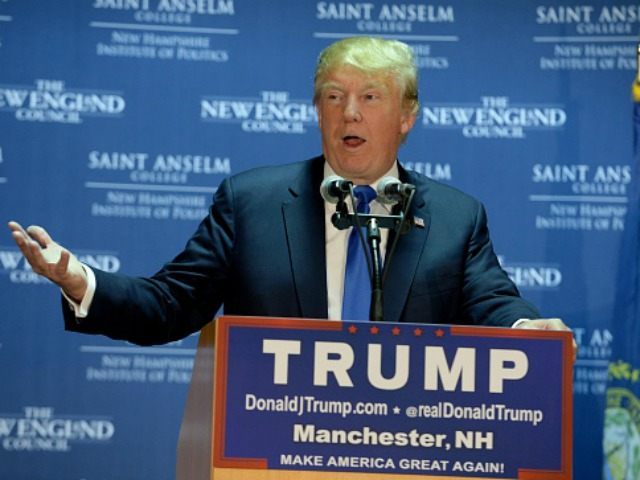The Republican establishment is reliving its 1980 New Hampshire trauma — it is in disarray and unable to consolidate behind a candidate to challenge more conservative rivals.
The most recent RealClearPolitics average of polling shows that GOP frontrunner Donald Trump maintains a clear lead in the Granite State, earning over 26 percent of the vote in the crowded field.
Three candidates, Florida Sen. Marco Rubio, New Jersey Gov. Chris Christie and Texas Sen. Ted Cruz are essentially tied for second, roughly 14 points behind Trump. Close behind these three is the cluster of Ohio Gov. John Kasich, former Florida Gov. Jeb Bush and neurosurgeon Ben Carson.
Only seven points separate the six trailing candidates, while Trump leads the pack by more than 14 points. At least three of the six trailing candidates, though, have staked their future candidacy on a good outcome in New Hampshire. All three, moreover, are making their appeal to the same, shrinking, universe of mainstream Republicans.
Governors Kasich, Christie and Bush have all said that they each expect a strong showing in New Hampshire. Kasich and Christie have staked the future of their candidacies on a strong showing in the fickle primary state. Super PACs backing all three have already spent millions on advertising in the state and each campaign has devoted considerable time on the retail politics expected by New Hampshire voters.
Together, the three have conducted more than 300 separate events in a state were around 250,000 votes will be cast. For all of this effort, the three command just 29 percent support from Republicans between them.
They aren’t the only three competing for the mainstream Republican vote, however. Florida Sen. Marco Rubio has staked his campaign on being a moderate conservative acceptable to the more establishment wing of the party. He has built his campaign around his biographic profile, rather than idealogical battles and has openly courted the pro-immigration, corporate wing of the party.
Rubio has also centered his campaign on a robust neo-conservative foreign policy long favored by the international set within the Republican party. In some ways, Rubio has been a more forceful advocate for deploying the US military than even Sen. Lindsey Graham, who recently exited the race.
Rubio has conducted a more nationally focused campaign, though, rather than focusing lots of efforts in early states. He has conducted just around 40 events in New Hampshire so far, about half to a third of the number each of his establishment rivals have held.
His efforts in Iowa have been equally modest. Last week, Rubio announced a three-day bus tour covering seven towns in the first caucus state. The same week, Ted Cruz announced a 36-county bus tour. (Rubio actually cancelled the first day of his Iowa bus tour because of a forecast of snow.)
While Rubio has consolidated some national support from the establishment, his lackluster campaign efforts have allowed Kasich, Christie and Bush to carve out their own territory in New Hampshire.
With Trump dominating Iowa and Ted Cruz surging in Iowa and other early voting states, the Republican establishment faces a real potential nightmare in New Hampshire. With Kasich, Bush, Christie and Rubio all contesting the same political terrain in the state, it is likely that none of them will break out of the state with enough momentum to counter victories by Cruz and Trump in the first two states votes.
There is a deeper problem for the establishment, though. It’s long hold on the party is getting much weaker.
Together, the four “moderate” candidates only earn just over 40 percent of the Republican vote in New Hampshire. Trump and Cruz together earn 40 percent support in New Hampshire, a state which is far less conservative ideologically than other early voting states.
Not only are Kasich, Bush, Christie and Rubio contesting the same slice of the party, but that slice is getting smaller.
Anxiety about the economy and foreign affairs are part of this equation. So too, though, is the Republican Congress’ apparent acquiescence with President Barack Obama’s agenda. In many ways, these four promise the same leadership that ceded almost all policy and spending ground to the Democrats just a couple weeks ago.
In the 2008 and for 2012 races, the mainstream Republican acceptable to a large segment of the party defeated a host of more conservative challengers, partly because conservatives fought a war of attrition against each other.
The reverse is true this year. Conservatives are relatively united behind either Trump or Cruz, while the establishment candidates are hopelessly splintered. Perhaps the biggest difference, though, is that the conservative wing of the party has grown so much larger that it can accommodate two leading candidates.
The chief challenge for Kasich, Bush, Christie and Rubio isn’t just that they are cannibalizing each other. Their problem is that the party establishment has lost its hold on its voters.

COMMENTS
Please let us know if you're having issues with commenting.